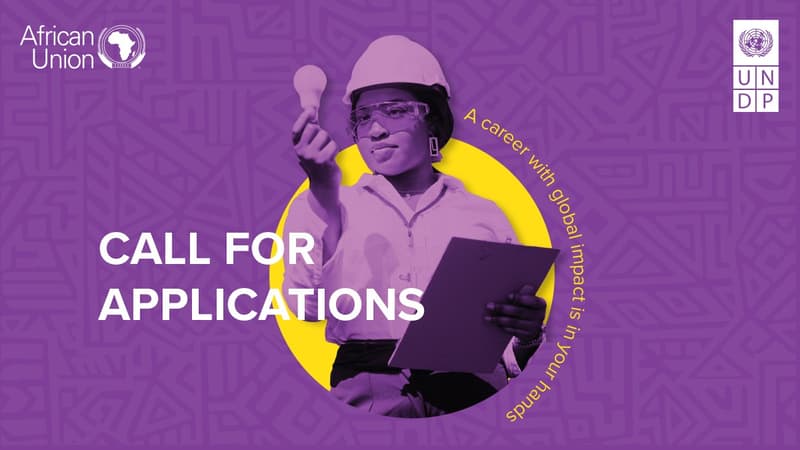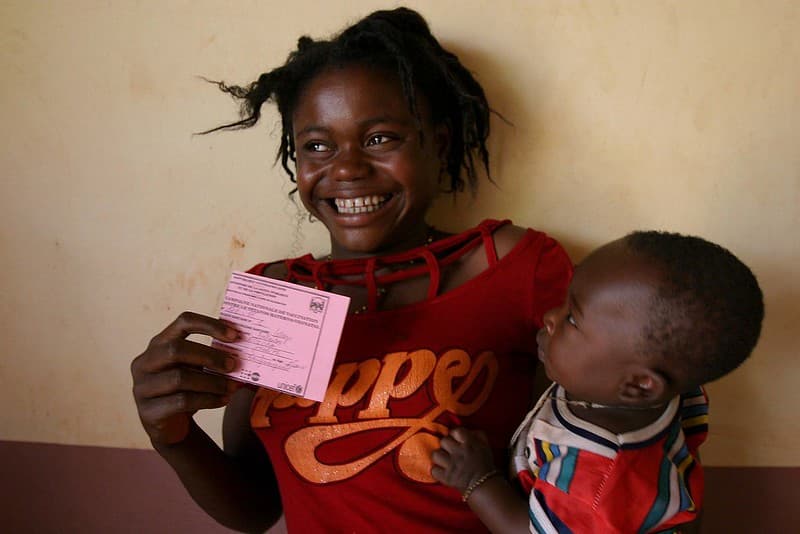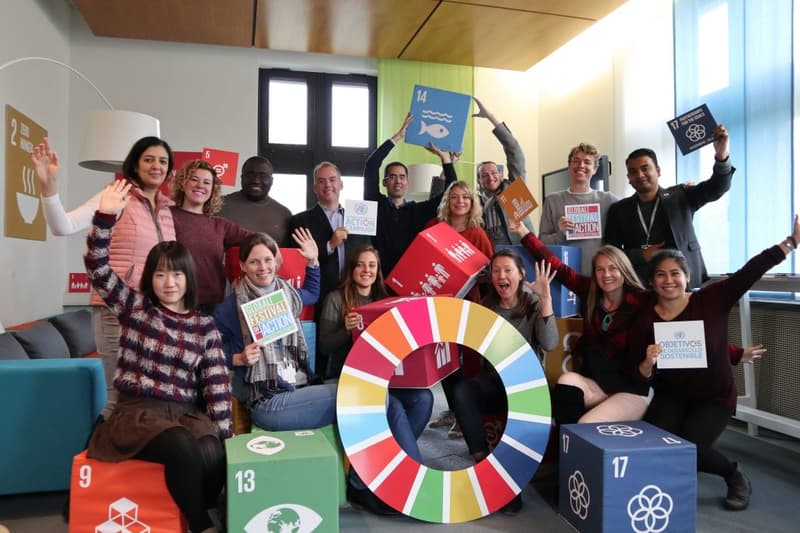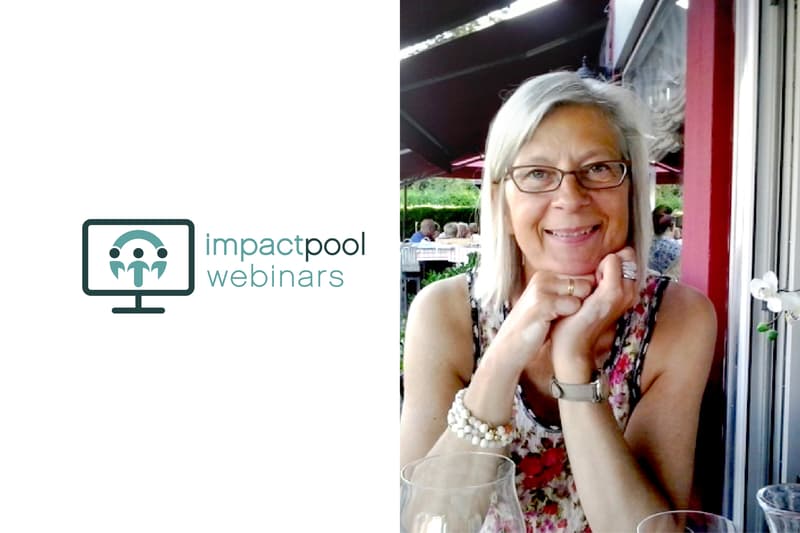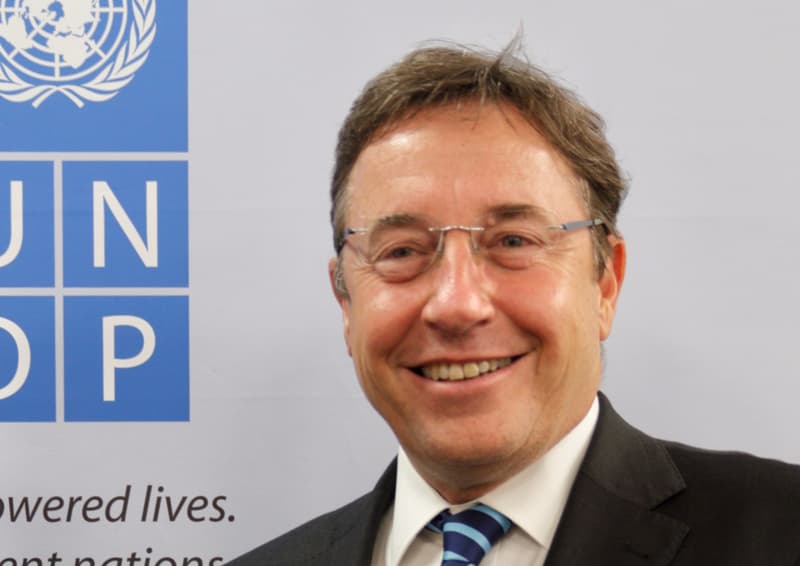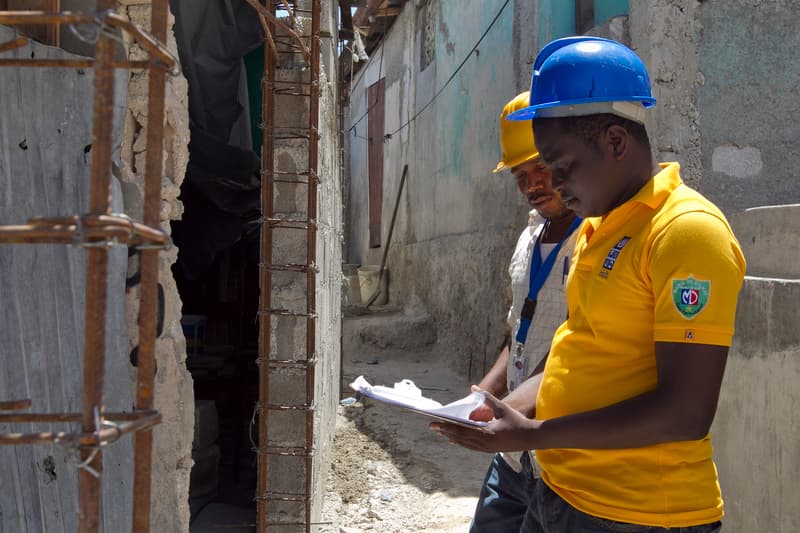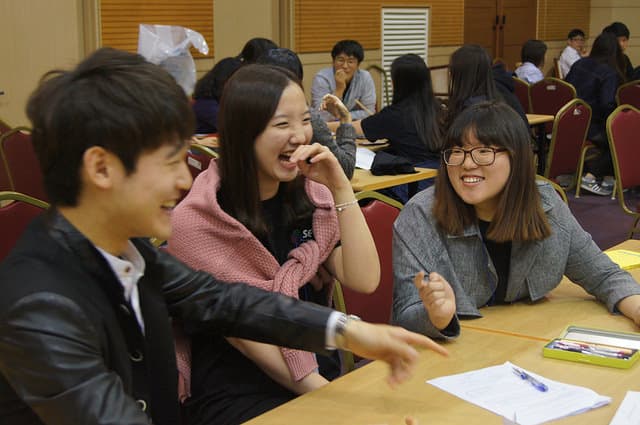National Consultant for Vocational Training needs assessment for IDPs
Sudan
- Organization: UNDP - United Nations Development Programme
- Location: Sudan
- Grade: Consultancy - National Consultant - Locally recruited Contractors Agreement
-
Occupational Groups:
- Development Cooperation and Sustainable Development Goals
- Education, Learning and Training
- Labour Market Policy
- Food Security, Livestock and Livelihoods
- Closing Date: 2024-01-29
Background
The situation in Sudan has significantly worsened since the current conflict started and the fighting between the SAF and the RSF has killed hundreds of people. 6.6 million people have been displaced inside and outside Sudan since fighting broke out between the Sudanese Armed Forces and the Rapid Support Forces. More than 12,190 people have been killed since the fighting broke out in mid-April. Eighty children have been identified among the people detained by Rapid Support Forces in Ardamata, West Darfur. The number of suspected cholera cases has more than doubled over the past month reaching 5,414 cases, including 170 associated deaths. The revised 2023 Sudan Humanitarian Response Plan appeal is only 38.6 per cent funded as of 7 December. These distressing trends highlight the breakdown of the rule of law and institutions to protect the civilian population, exacerbating the humanitarian crisis in the country. The protection of civilians remains a significant concern, with reports of escalating use of sexual and gender-based violence, targeted attacks on - or harm against – civilians, based on ethnicity, grave violations of children's rights, family separations, theft, abduction of girls, and extortion in all regions affected by the hostilities as fighting rages on.
The humanitarian situation has deteriorated rapidly, with millions of ordinary people, the majority living in de facto female-headed households in Sudan, facing hindered access to food, water, shelter, health care, cash, fuel, and other basic services, while livelihood opportunities have dwindled. Sudan is one of the top four hotspots of highest concern for the Food and Agriculture Organization (FAO) and the World Food Programme (WFP) for the November 2023 to April 2024 outlook. Nearly one in three people in Sudan could soon become food insecure. Malnutrition is an increasing problem in all states, especially for children and pregnant and lactating women, increasing the risks of compromised immune systems, vulnerability to disease, and starvation. The already fragile health system is in tatters, with looming disease outbreaks, including cholera, dengue fever, measles, and malaria. More than 70 per cent of health facilities in conflict areas are out of service, and about two-thirds of Sudan’s population lack access to health care.
Women and girls are disproportionately affected by violence due to displacement and are overwhelmed by the additional demands placed on them as caregivers, in an already underserviced population. This initiative thus builds on three essential pillars that it will undertake in the Gedaref and Al Jazeerah states which have registered 275,001 and 436,645 IDPs respectively. More than half of those displaced are women and children. As a result of the above, UN Women plans to undertake livelihood interventions targeting women IDPs, and vulnerable women in host communities to promote livelihood stabilization and protection in target states of (Gedarif and Al Jazeera).
Livelihoods needs in Sudan
Overall economic activity in the country has been hit by reduced mobility and incomes, as well as the ongoing disruption of critical business services, including logistics and telecommunications, and public services such as health and education. Continued conflict, including air strikes targeting key economic sectors, is likely to further constrain Sudan’s limited productive potential. Farmers have been affected by higher input prices and limited access to credit. Sudan will likely continue to struggle with elevated price levels in 2024. Across most states, the displaced, especially female-headed households continue to experience higher monetary vulnerability than their host communities. The lack of income undermines the IDPs’ housing security, health, with many reporting being unable to cover increasing costs for services and food. Livelihood gaps have direct impacts on protection as families turn to negative coping strategies including early marriage and child labour.
Duties and Responsibilities
Purpose of consultancy
To identify the vocational skills gap and provide training that is compatible with the local market, identify and recommend potential training institutes. The findings will be used to equip the potential beneficiaries with employable skills and provide them with viable livelihood options. Based on the assessment, information on the knowledge gaps will be gained and a training plan will be developed.
On completion of the assessment, a training plan will be developed - tailored to the needs of target beneficiaries, define topics for training, and facilitate vocational training, establish private partnership (where possible), undertake stakeholder analysis to identify possible partners.
The selected consultant will draft an inception report that defines the methodology for conducting the vocational training needs assessment.
The consultant will work under the overall guidance of the Humanitarian Specialist throughout the contract period
The expected results are as follows:
- To prepare an assessment methodology for the training needs assessment
- Undertake training needs assessment and identify the main gaps for capacity building of target beneficiaries (IDP women, IDP youth (male and female), and women in host communities in target states (Gedarif, Al Jazeera States);
- To prepare a training plan based on the undertaken needs assessment.
- Produce a Training needs assessment report.
Time Frame and Input
|
Deliverable |
Description |
#of days |
|---|---|---|---|
|
Develop assessment methodology and prepare the questionnaire. |
Develop a methodology and approach for training needs assessment. |
2 |
|
Conducted not less than 50 structured interviews in each state (10 interviews for women, 10 for male youth, and 10 for female youth - IDPs, and 10 women from host communities) |
Conduct individual face-to-face interviews |
7 |
|
A training plan |
Data processing received of the received questionaries’ and conducted interviews. Preparation of the capacities building training plan based on identified main gaps of the current capacities |
1 |
|
Draft Training needs assessment report |
Preparation of draft training needs assessment report |
3 |
|
Final Training needs assessment report |
Preparation for the final training needs assessment report |
2 |
The Training needs assessment report should be in English, between 15 -20 pages without Annexes, and consist of:
- Title Page, Acronyms, and Table of Contents
- Executive summary.
- Training needs assessment methodology.
- Findings from needs assessment by sex, age, status (IDP or host community members), and State.
- Training plan for improving the capacity of the target beneficiaries.
Competencies
Core Values:
- Respect for Diversity
- Integrity
- Professionalism
Core Competencies:
- Awareness and Sensitivity Regarding Gender Issues
- Accountability
- Creative Problem Solving
- Effective Communication
- Inclusive Collaboration
- Stakeholder Engagement
- Leading by Example
Functional Competencies
- Excellent information management, analytical and research skills.
- Strong understanding of and commitment to gender equality and women's empowerment and its policy implications.
- Excellent writing skills.
- Excellent organizational skills.
- Excellent knowledge and experience of gender-related humanitarian issues in the country.
- Strong knowledge and use of computer office tools and statistical software.
- Demonstrated ability to work in a team and in a cooperative and productive fashion both with internal and external colleagues.
- Excellent interpersonal and networking skills, and ability to work in multi-cultural and multi-disciplinary environments.
- Ability to work under pressure on multiple projects whilst maintaining high-quality and timeliness.
- Self-management.
- Continuous awareness of political and gender sensitivity
Required Skills and Experience
Qualifications and Skills required:
- A University degree in the field of social sciences and at least seven (7) years of general professional experience are requested below;
- Demonstrated experience and skills in facilitating stakeholder/working group consultations;
- The candidates must be fluent in English, as well as in local languages in the target area, with the ability to produce well-written reports and demonstrated analytical and communication skills.
Specific professional experience:
- At least five (5) years of prior work experience in conducting assessment, or in the field of training and training needs analysis.
Languages:
- Proficiency in English and Arabic languages.
Please note that applications without a completed and signed UN Women P-11 form will be treated as incomplete and will not be considered for further assessment.
UN Women Personal History form (P-11) can be downloaded from .
UNWOMEN is committed to achieving workforce diversity in terms of gender, nationality and culture. Individuals from minority groups, indigenous groups and persons with disabilities are equally encouraged to apply. All applications will be treated with the strictest confidence.
At UN Women, we are committed to creating a diverse and inclusive environment of mutual respect. UN Women recruits, employs, trains, compensates, and promotes regardless of race, religion, colour, sex, gender identity, sexual orientation, age, ability, national origin, or any other basis covered by appropriate law. All employment is decided on the basis of qualifications, competence, integrity and organizational need.
If you need any reasonable accommodation to support your participation in the recruitment and selection process, please include this information in your application.
UN Women has a zero-tolerance policy on conduct that is incompatible with the aims and objectives of the United Nations and UN Women, including sexual exploitation and abuse, sexual harassment, abuse of authority and discrimination. All selected candidates will be expected to adhere to UN Women’s policies and procedures and the standards of conduct expected of UN Women personnel and will therefore undergo rigorous reference and background checks. (Background checks will include the verification of academic credential(s) and employment history. Selected candidates may be required to provide additional information to conduct a background check.)


